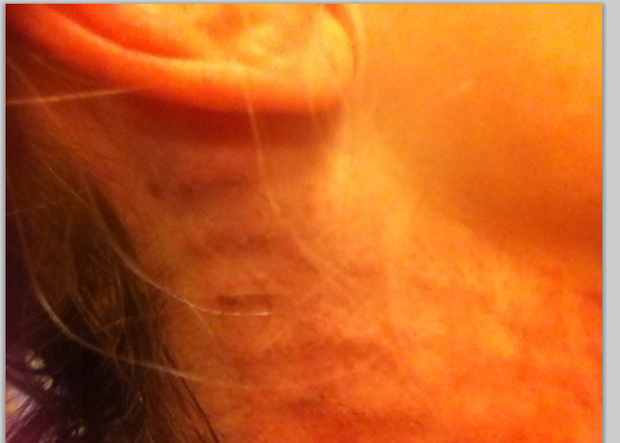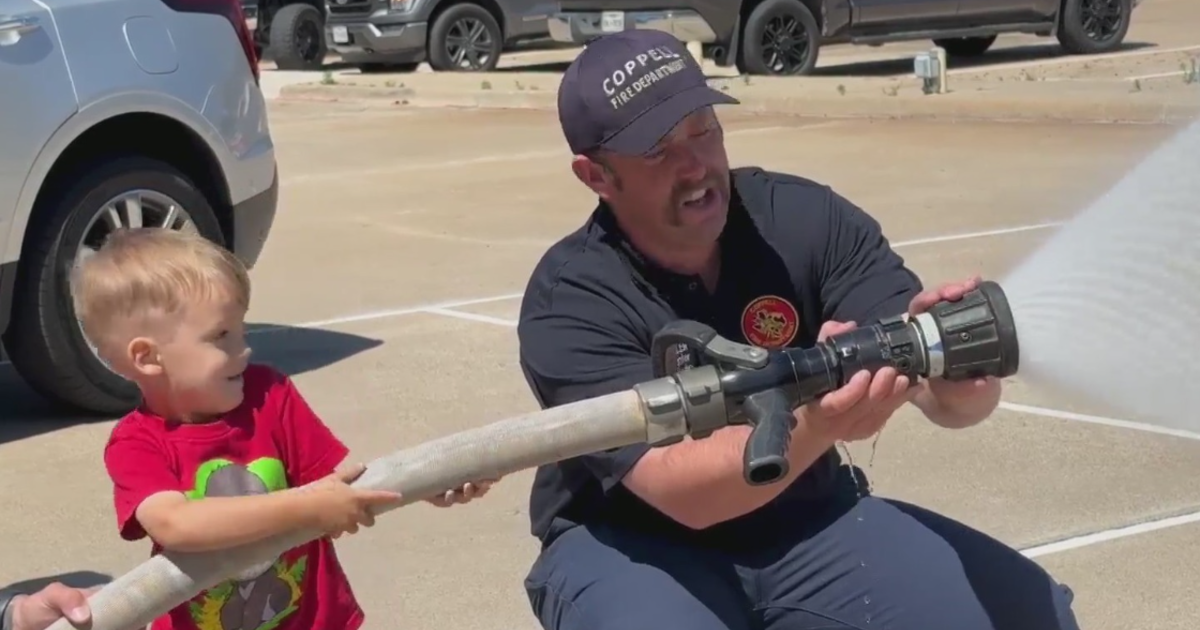Two Dallas Women Burned By Beauty Procedure, Company Doesn't Notify FDA
Follow CBSDFW.COM: Facebook | Twitter
DALLAS (CBSDFW.COM) - Two North Texas women said they were permanently disfigured after a beauty procedure.
CBS11 uncovered the company that makes the product never reported the injuries to the FDA -- a violation of federal law.
♦"What Happened To Her Face?"
Sue Mardock is reminded every day of what she said Fractora did to her face.
"I can see people staring like, 'Did a bear get her or what happened to her face'," said Mardock.
Fractora, made by Invasix, is supposed to tighten the skin through radio frequency treatments.
According to the Invasix website, Fractora delivers RF energy to the skin through an array of pins producing localized heat and small micro-lesion dots in the treatment area. The gentle heat generated by the Fractora pins in the sub-dermal tissue promotes collagen restructuring for skin rejuvenation and an improved appearance in the skin. The methodical scattering of micro-lesions allows the skin to heal faster than if the entire area was ablated.
"It was supposed to be simple, five to seven day downtime where I was going to be swollen for a little bit and I was going to look great," said Mardock.
The 58-year-old mother of eight looks happy and excited in her before picture in January 2014.
Her after pictures show red, swollen skin dotted with white claw-like scars.
"She's now permanently disfigured," said Amy Davis who represents Mardock.
Mardock said she agreed to be the test subject for Fractora for a doctor who was considering purchasing the Fractor device.
"Nobody ever said there was any risks at all," said Mardock.
Court documents show the doctor was testing the Fractora device and the Invasix sales rep guided the doctor through the process.
"He selected the very most aggressive perimeters that you can use with this machine and badly burned Ms. Murdock," said Davis.
Mardock said the doctor asked the sales rep several times if things were going ok.
"He'd continue to tell her to press harder. She'd say, my hand is hurting. I don't see how I could do two of these in a row. He said, you'll get used to it," said Mardock.
Mardock said she knew it had gone wrong as soon as they treatment was done.
"I was very red, it was burning really bad," said Mardock.
Davis said the scars Sue was told would heal into tighter looking skin turned into white indented lines she can't reverse.
"That's because the pigment in the area of the skin was obliterated. You can't put pigment back in the skin," said Davis.
According to court documents, Mardock wasn't the only woman burned that day by Fractora.
Mellisia Webb, 63, had the treatment on her neck by the same doctor and sales representative.
According the complaint filed by Webb's attorney, Webb did not sign a consent form as required by Texas statue and was not informed of the risks.
Webb said she was left with deep wounds and claw-like scars.
Her lawsuit claims Webb, who is in the skin enhancement industry, has suffered as a result of the disfigurement.
The Webb case heads to trial in January.
A settlement was recently reached in the Mardock case after CBS11 started asking questions.
The details of the settlement are confidential.
The doctor who performed the procedure on Mardock told CBS11 by email that Mardock contributed to the injuries by not following aftercare instructions.
The doctor claims Mardock did several activities that put her recovery in jeopardy including going into an outdoor hot tub, attending a rodeo shortly after the procedure and caring for numerous animals.
Davis could not comment on these claims on behalf of her client because they were made after the settlement was agreed upon.
An attorney who represents Invasix told CBS11 by email:
The Fractora platform is frequently utilized in aesthetic dermatologic procedures by leading platic and reconstructive surgeons and dermatologists throughout the United States and internationally. Fractora is widely considered a safe and efficacious treatment modality; and complications of treatment, though a risk of any such medical procedure, are exceedingly rare and tend to be transient.
♦No Results Found
Consumer Justice searched the FDA database for the adverse event reports for either of the cases but none were filed by Invasix.
Under federal law a company must submit a report 30 days after being notified of undesirable experience with a product -- including disability or permanent damage.
Invasix would not comment on why they never filed an adverse event report but CBS11 did learn the company was made aware of what happened.
An email to the president of Invasix on March 5, 2014 shows the doctor reported what happened to both women to the company and blamed the sales rep for the high settings.
According to the Manufacturer Reporting Requirements outlined by the FDA, manufacturers are considered to have "become aware" of an MDR reportable event when:
· any employee becomes aware of a reportable event required to be reported within 30 days, or required to be reported within 5 days pursuant to a written request from FDA; or
· any employee who is a person with management or supervisory responsibilities over persons with regulatory, scientific, or technical responsibilities, or a person whose duties relate to the collection and reporting of adverse events, becomes aware that a reportable event, from any information, including any trend analysis, necessitates remedial action to prevent an unreasonable risk of substantial harm to public health. FDA believes these time frames for reporting should be triggered when employees of the reporting entities become aware of events. FDA believes that manufacturers have a direct responsibility to inform all employees to forward immediately adverse event information to the appropriate person designated by the manufacturer as responsible for MDR reporting.
The FDA would not comment specifically on the Invasix case but told CBS11 through email if a manufacturer does not comply with these and other medical device reporting requirements, the FDA may take enforcement action against the manufacturer.
According to the FDA guidelines, enforcement could include a recall, civil money penalty, warning letters, seizure, citation, injunction or prosecution.
(©2015 CBS Local Media, a division of CBS Radio Inc. All Rights Reserved. This material may not be published, broadcast, rewritten, or redistributed.)




